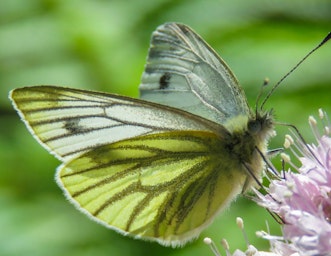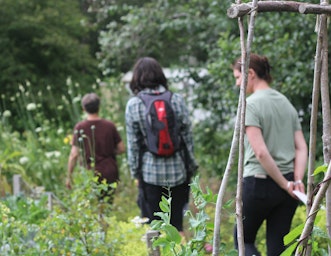
Join our postgraduate students on a CAT teaching week and delve into ecological research methods, explore indicators of an ecosystems health and how we can use all this to inform management plans.
Through a series of lectures, discussions, and practical activities you will learn alongside our postgraduate students on our MSc courses in Sustainability and Ecology and Sustainable Food and Natural Resources.
You will experience what it might be like to study on one of our postgraduate courses at CAT and gain a better understanding of ecosystem assessment methods and how we can use these to improve ecosystem health.
Key Information
- Duration: five days
- Upcoming dates: Monday 7 October – Friday 11 October
- Start and finish times: starts at 10am and ends at 3pm on the last day
- Fees: £700
- Includes: tuition, all materials, lunch
- Please note that accommodation is NOT available at CAT for this course.
- What to bring: good boots and waterproof clothing is advised
- Terms and Conditions:
- You must be 18 years or over to attend our courses.
- For full list of terms and conditions click here
Attendees will receive a certificate of attendance for joining the course at the end of the week. If attendees wish to enrol on a postgraduate course at CAT and take the module within their future course, they will be able to receive a discount on tuition costs.
Who is this course aimed at?
This week is aimed at people who wish to have a taster of studying at postgraduate level at CAT, with an interest in the natural world and a passion for conservation, environmentalism and nature.
What you will learn
During this short course participants will gain a thorough understanding of research-based methods that have been developed to assess key concepts in sustainable ecology, learn to carry out a variety of ecological assessments, and explore how we can use this information to help restore, repair and protect ecosystem health.
Topics covered includes:
- Key concepts in sustainable ecology, such as biodiversity and forms of ecosystem functioning.
- Identification techniques for flora and fauna.
- The value of local, national, international and traditional information on ecology, ecological health and ecological change.
- How we can use data to help assess ecological health and inform management plans.
How will I learn
Through pre-reading and some pre-recorded introductory lectures, live in person lectures, discussions, group activities and practical activities at CAT and on field trips.
This short course is part of the teaching week for the MSc module Ecological Assessment.
Please be aware there may be some activities and content during the week only available to students, where an activity isn’t appropriate for the short course attendee, we will endeavour to arrange a replacement activity.
Meet your tutors:
Module Leaders
Jane is a Senior Lecturer and Programme Leader for our Sustainability and Ecology and Sustainability and Behaviour Change courses. Mainly involved in the management of our programmes, she also teaches lectures and practicals for both on-site and distance-learning students. Jane previously worked as a BSc programme leader in ecology and conservation at Liverpool John Moores,
Alexandra Hamer is a senior lecturer at CAT’s Graduate School, teaching students on our MSc in Sustainability courses. She teaches on our postgraduate modules focusing on ecology and food. She also contributes GIS support to other modules and is particularly interested in helping students to become confident in the use of GIS.
Other tutors and lecturers
Alongside the module leader and expert Graduate School staff, teaching sessions are led by a range of guest speakers and lecturers currently working in the sector and academia who join students on-site or through live streams.
Related events


On-site Open Day: MSc & MRes Courses
27th June 2025
On-site Open Day: MArch Sustainable Architecture course
27th June 2025
The Science of Sustainable Food Production (Sold out)
30th June 2025Searching Availability...
Email sign up
GRADUATE SCHOOL OF THE ENVIRONMENT
Learn more about our exciting postgraduate courses and sign up for our emails to stay up-to-date on all the latest.
